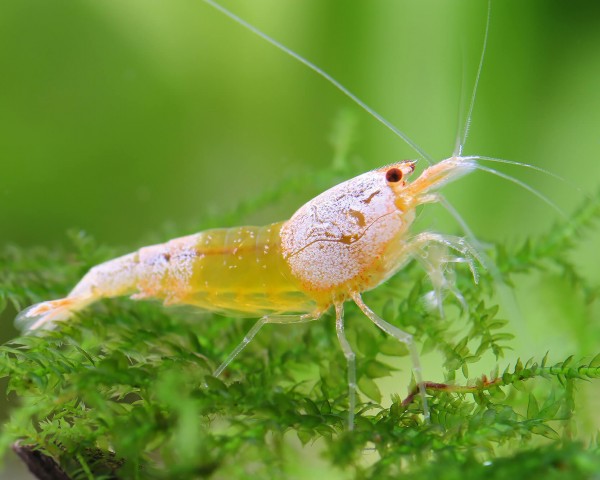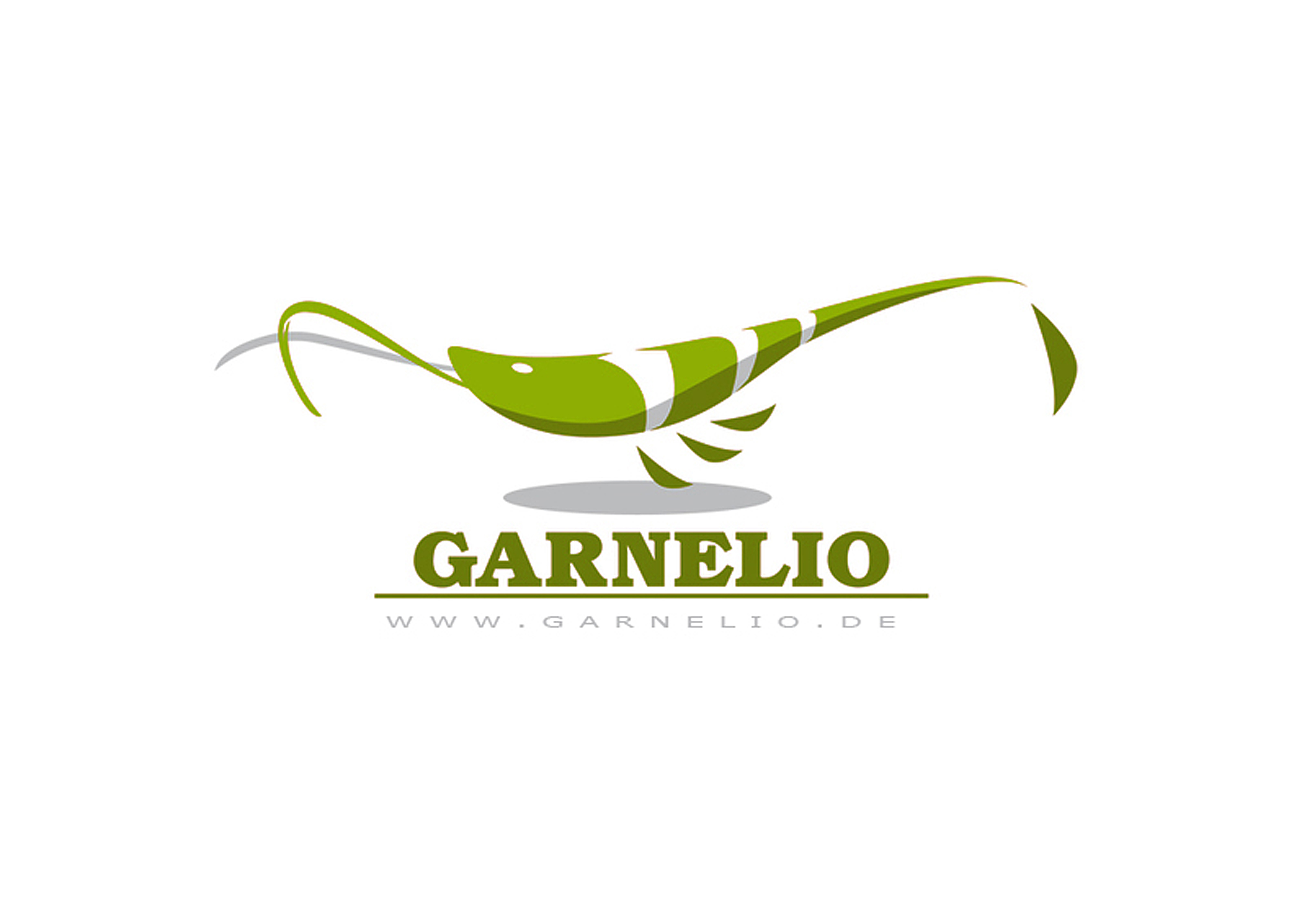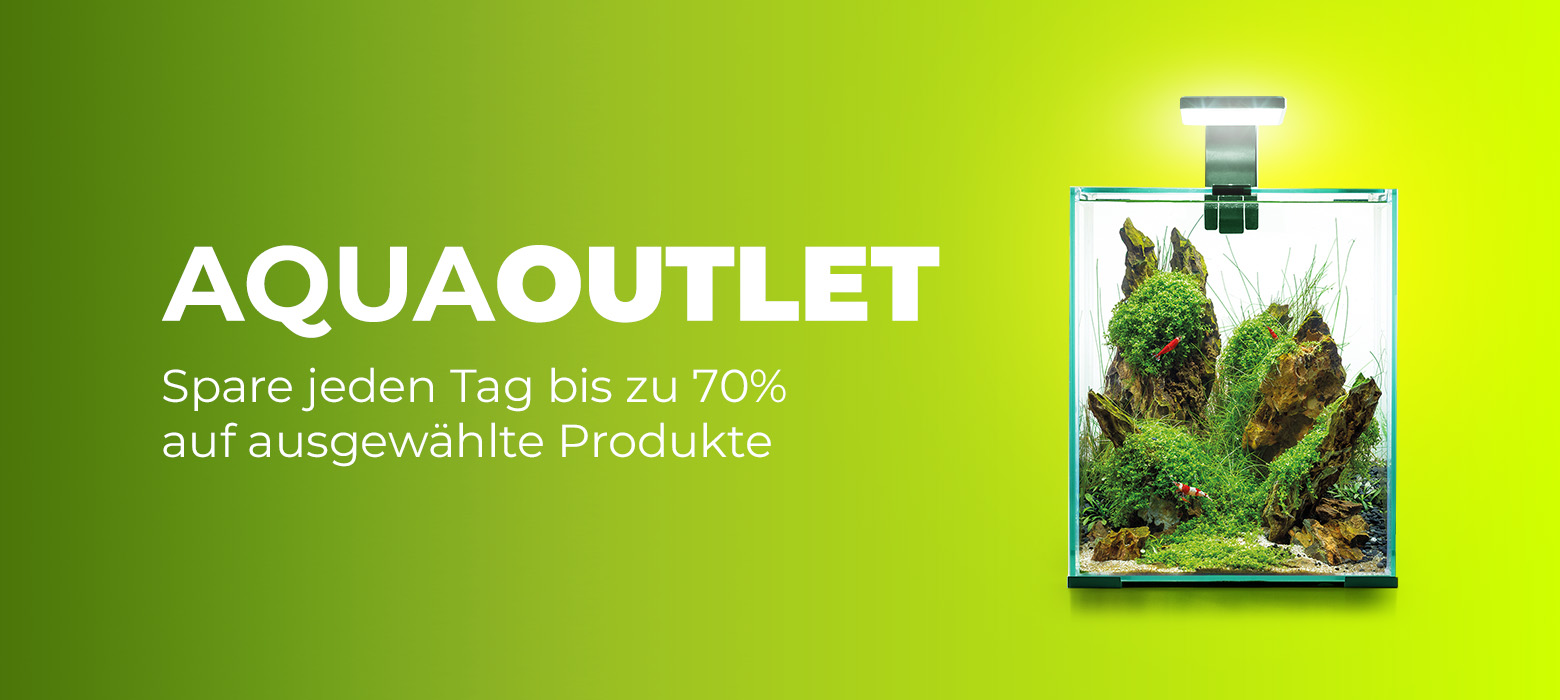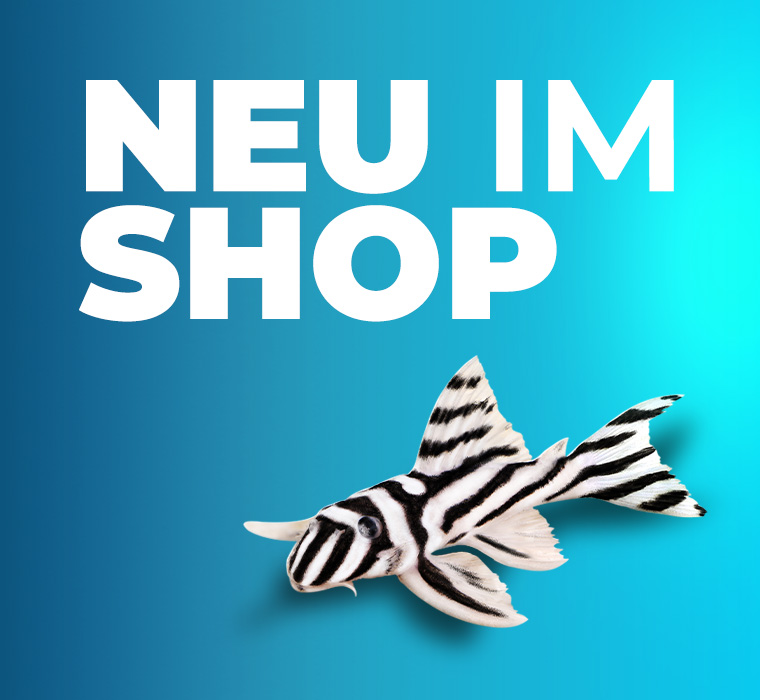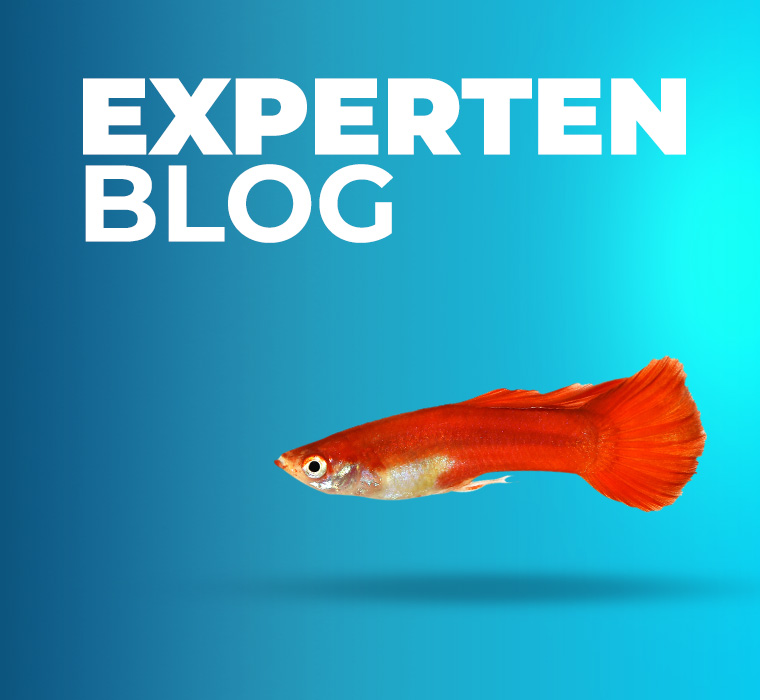| from 3 | € 9,99* € 8,19* / Stk. | -18% |
| from 10 | € 9,99* € 7,99* / Stk. | -20% |
| from 20 | € 9,99* € 7,69* / Stk. | -23% |
incl. VAT plus shipping costs
Ready for shipment in 5 Day(s)
- Item no: 1302
Fast delivery times
All products are in stock with us!14 years of breeding experience
Let our team of experts advise you!High customer satisfaction
from over 3,000 reviews "| Propagation: | possible in fresh water |
| Difficulty: | for advanced |
| Origin: | German offspring |
| Water values: | soft to medium hard |
| Coloring: | White |
The Snow White Bee Rili shows beside the typical white color coverage of the Show White Bee Shrimp (often simply called Snow White) on head and tail a middle part completely without color coverage, through which the orange-yellow transparent body color shines through. The Snow White Bee Rili Shrimp does not have red or black pigments. Like the Snow White, the Snow White Rili belongs to the species Caridina logemanni. With 3.5 cm body length the females become relatively large. The males do not quite reach this body length, and they are also slimmer in physique.
Like all color variants of Caridina logemanni the Snow White Rili prefers very clean, soft and oxygen-rich water. Temperatures up to 25 °C are tolerated, so a cooler is needed for summer rather than a heater. Tap water is in most areas not really suitable for long term keeping of bee shrimp, so in case of doubt we recommend the use of osmosis water and an appropriate mineral salt for bee shrimp, with which the water can be brought to the appropriate values. As a soft water shrimp, the Snow White Rili especially does not tolerate high carbonate hardness in the long run. With the so-called bee salt this has been taken into account. A substrate that actively influences the water values and sets favorable values for bee shrimp (a so-called active soil) is also useful, but you can of course also keep Snow White Rili Bees on neutral substrate such as gravel or sand. Only no lime should be added, so that the water is not inadvertently hardened. Per week 10 to 30% of the aquarium water should be changed.
The Snow White Rili Bee also reproduces quite well under good environmental conditions. The Rili trait is inherited, but it is possible for fully colored Snow White Bees to appear in the offspring, even if both parents had the Rili markings. If you want to consolidate the Rili trait, you have to select the offspring. Rilis can fall again in the offspring of the solid colored ones, these can be added to the Snow White Rili Bees of course. Female Snow White Rilis carry about 20 to 40 eggs under their abdomen. They engage in brood care, repeatedly fanning the eggs with oxygenated water, and they also preen them. After a gestation period of four to six weeks, fully developed young shrimp crawl out of the eggs and no longer require care from the mother. Initially, Snow White Rili baby shrimp are not very mobile, they do not move much from the spot. Therefore, we recommend feeding a special dust food for baby shrimp that really reaches all corners of the aquarium.
The Snow White Rili Bee is also an omnivore. It cleans up what others leave behind. Therefore, food selection for the Snow White Rili Bee is not complicated. Normally these dwarf shrimp are not fussy about food. They like to eat brown autumn leaves, which can remain in the aquarium as a useful permanent food until it has been eaten. It does not affect the water values negatively. Of course, the Snow White Rili also needs protein, so we recommend giving a suitable protein food about two or three times a week. The rest of the week the dwarf shrimp should be fed mainly vegetable food.
The Snow White Rili Bee mixes with all other color varieties of the bee shrimp (Snow White, Black Bee or Red Bee) and also crosses with Tiger Shrimp and Taiwan Bees. The animals can be socialized very well with each other, since they are all members of one species and accordingly have identical requirements. If you put them together with other shrimp species, the water requirements must of course also match. Snow White Rili can be kept very well with snails and small calm fish, although a species tank is recommended due to their lower reproduction rates. Crayfish, dwarf crayfish, predatory snails and freshwater crabs are not suitable aquarium mates, nor are mussels, due to their different water requirements and also, in part, their feeding habits.
Our food recommendation: NatureHolic's soft mainfeed softpads are designed for daily feeding. They contain all the nutrients shrimp need for shell development, egg formation and growth. During the production we pay attention to a gentle and environmentally friendly production, which preserves the vitamins and other valuable ingredients as much as possible.
Our plant recommendation: Use for planting NatureHolic InVitros. These are free of snails, planaria and other unwanted co-inhabitants. Also free of algae spores, bacteria and fungi.
Expert Tip: We recommend for fish keeping the NatureHolic 3 Phase Liquid. The care set offers the best all-round protection for your animals. It ensures optimal conditions for successful breeding and keeping.
| Scientific name: | Caridina logemanni Klotz & von Rintelen, 2014 |
| German Name: | Snow White Rili Bee, Snow White Rili Bee Shrimp, Snow White Rili Shrimp |
| Difficulty level: | for informed beginners and advanced fishers |
| Origin/Distribution: | Cultivated form |
| Coloration: | Head and tail area white (varying opacity), center of body colorless, golden body color visible |
| Age expectancy: | 18 to 24 months |
| Water parameters: | GH 3 to 10, KH 0 to 3, pH 5 to 7.5, temperature 15 to 25 °C |
| Tank size: | from 10 l, but we recommend a size of at least 20 l, especially for beginners |
| Food: | Protein food 1 to 2x weekly, otherwise rather vegetable(Natureholic Mainfeed) |
| Propagation: | relatively easy, after four to six weeks 20 to 40 young hatch |
| Behavior: | peaceful |
| Socialization: | with other shrimps, small peaceful fish and snails |
| Further information | Foliage for the aquarium + foliage list, Feed shrimp, crayfish, snails & mussels properly, 10 tips for budding aquarists |
- Item no: 1302
Entdecke die Garnelio Welt!
Garnelio gehört zu den größten Onlineshops für wirbellose Aquarientiere weltweit.
Viele Artikel gibt es exklusiv nur bei uns im Shop.

